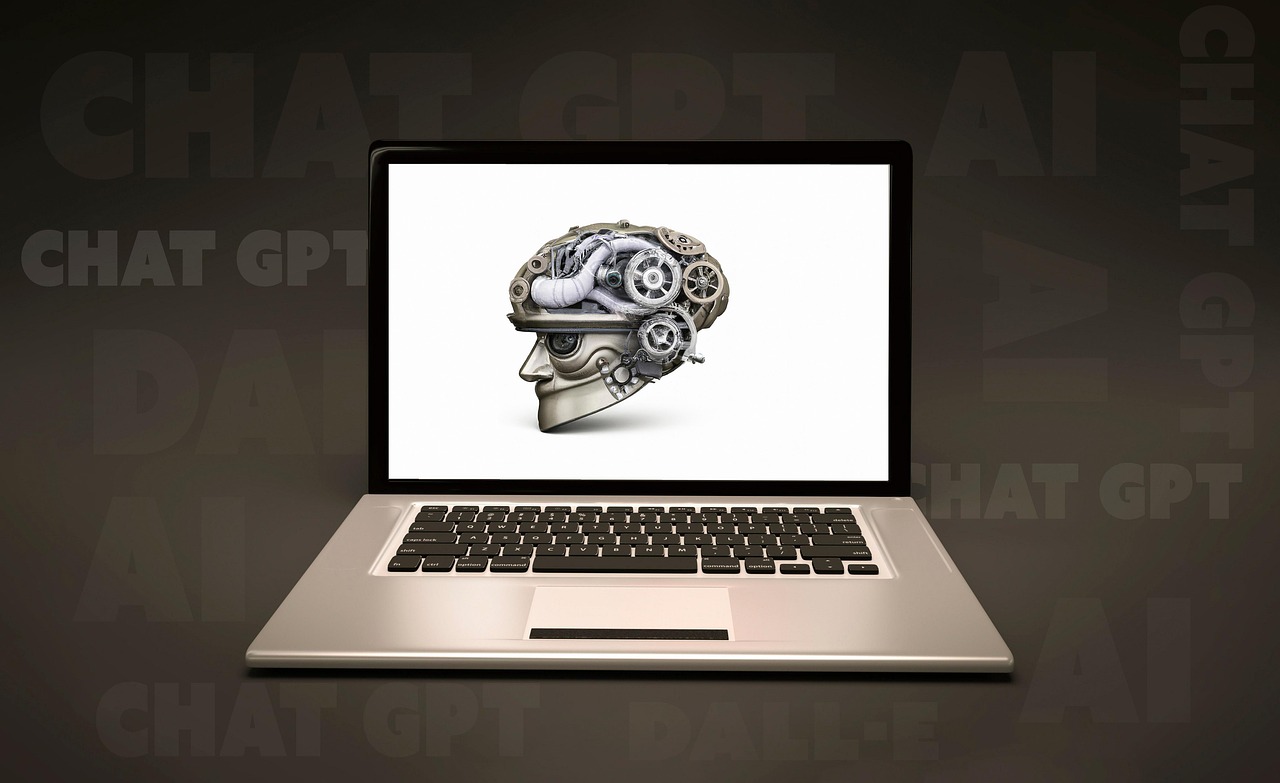The marketing landscape is evolving at warp speed, and at the heart of this evolution lies Artificial Intelligence (AI). Once a futuristic concept, AI is now a tangible, transformative force, reshaping how businesses connect with their audiences, optimize their campaigns, and ultimately drive revenue. From personalized customer experiences to predictive analytics that anticipate market trends, AI in marketing is no longer a luxury but a necessity for businesses aiming to stay ahead of the curve. Let’s dive into how AI is revolutionizing the marketing world.
Understanding AI’s Impact on Marketing
What Exactly is AI in Marketing?
AI in marketing refers to the use of artificial intelligence technologies to automate and improve marketing processes. It involves employing algorithms and machine learning to analyze vast amounts of data, identify patterns, predict outcomes, and personalize marketing efforts, ultimately leading to more efficient and effective campaigns. This isn’t just about automating simple tasks; it’s about leveraging intelligent systems to make data-driven decisions that enhance the entire customer journey.
Key Benefits of AI in Marketing
- Improved Efficiency: AI automates repetitive tasks, freeing up marketers to focus on strategic initiatives.
- Enhanced Personalization: AI analyzes customer data to deliver tailored experiences and messaging.
- Better Decision-Making: Predictive analytics provides insights for more informed marketing decisions.
- Increased ROI: AI-powered campaigns often result in higher conversion rates and revenue generation.
- Deeper Customer Insights: AI algorithms uncover hidden patterns in customer data, providing valuable insights.
- Streamlined Workflows: Automate A/B testing, content creation, and campaign management for increased efficiency.
Examples of AI-Powered Marketing Tools
- Chatbots: Provide instant customer support and lead generation.
- Personalization Engines: Recommend products or content based on individual preferences.
- Predictive Analytics Platforms: Forecast sales trends and customer behavior.
- Content Creation Tools: Generate marketing copy and automate content distribution.
- Email Marketing Automation Platforms: Send personalized emails based on customer actions and behavior.
AI-Driven Personalization and Customer Experience
Personalization at Scale
AI allows marketers to deliver highly personalized experiences to customers at scale. By analyzing data points such as browsing history, purchase behavior, and demographic information, AI can identify individual preferences and tailor marketing messages accordingly. This level of personalization goes beyond simply addressing customers by name; it involves anticipating their needs and delivering relevant content and offers at the right time.
Examples of Personalized Marketing Using AI
- Product Recommendations: AI-powered recommendation engines analyze past purchases and browsing history to suggest relevant products. For example, Amazon uses AI to recommend products to customers based on their previous shopping behavior.
- Dynamic Content: Websites and apps dynamically adjust content based on user behavior and preferences. Netflix tailors its movie and show recommendations based on viewing history.
- Personalized Email Campaigns: AI creates personalized email messages that resonate with individual recipients, leading to higher open and click-through rates. Companies like Marketo offer AI-powered email marketing tools.
- Targeted Advertising: AI algorithms target ads to specific demographics and interests, maximizing ad spend effectiveness. Facebook Ads Manager uses AI for precise targeting.
Improving Customer Experience with AI
- Enhanced Customer Support: AI-powered chatbots provide 24/7 customer support, addressing common queries and resolving issues quickly.
- Proactive Engagement: AI identifies opportunities to proactively engage with customers, such as offering assistance or providing relevant information.
- Seamless Omnichannel Experience: AI ensures a consistent and personalized experience across all touchpoints, including websites, apps, and social media.
Predictive Analytics and Marketing Insights
Leveraging Data for Informed Decisions
Predictive analytics uses AI and machine learning to analyze historical data and forecast future trends. This enables marketers to make informed decisions about campaign strategy, budget allocation, and target audience selection. Instead of relying on guesswork, marketers can use data-driven insights to optimize their efforts and maximize ROI.
How Predictive Analytics Works
Practical Applications of Predictive Analytics in Marketing
- Customer Churn Prediction: Identify customers who are likely to churn and implement retention strategies.
- Sales Forecasting: Predict future sales trends and adjust inventory levels and marketing efforts accordingly.
- Lead Scoring: Prioritize leads based on their likelihood to convert into customers.
- Campaign Optimization: Optimize marketing campaigns in real-time based on predicted performance.
Benefits of Using Predictive Analytics
- Reduced Customer Churn: Identify and address potential customer attrition.
- Improved Sales Performance: Forecast sales trends and optimize marketing efforts.
- Better Lead Generation: Focus on leads that are most likely to convert.
- Increased ROI: Optimize marketing campaigns for maximum effectiveness.
AI-Powered Automation in Marketing
Streamlining Marketing Processes
AI-powered automation streamlines marketing processes by automating repetitive tasks, freeing up marketers to focus on more strategic initiatives. This not only improves efficiency but also reduces the risk of human error.
Examples of Marketing Automation with AI
- Email Marketing Automation: Automate email campaigns based on customer behavior and preferences.
- Social Media Management: Schedule and publish social media posts automatically.
- Content Curation: Automatically discover and curate relevant content for your audience.
- Ad Campaign Optimization: Optimize ad campaigns in real-time based on performance data.
- Chatbot Interactions: Automate customer service interactions with AI-powered chatbots.
Tools for Marketing Automation
- HubSpot: Offers a comprehensive suite of marketing automation tools, including email marketing, social media management, and lead nurturing.
- Marketo: Provides advanced marketing automation capabilities, including personalized email campaigns and lead scoring.
- ActiveCampaign: Focuses on small businesses, offering email marketing, automation, and CRM features.
- Pardot (Salesforce): Designed for B2B marketing, providing lead generation, email marketing, and automation capabilities.
Advantages of Automation
- Increased Efficiency: Automate repetitive tasks and free up valuable time.
- Improved Accuracy: Reduce the risk of human error in marketing processes.
- Better Customer Engagement: Deliver timely and relevant messages to your audience.
- Enhanced Scalability: Scale your marketing efforts without adding headcount.
Ethical Considerations and the Future of AI in Marketing
Data Privacy and Security
As AI relies heavily on data, it’s crucial to address ethical considerations related to data privacy and security. Marketers must ensure they are collecting and using data responsibly, adhering to privacy regulations such as GDPR and CCPA. Transparency and consent are key to building trust with customers.
Bias in AI Algorithms
AI algorithms can perpetuate bias if they are trained on biased data. Marketers must be aware of this risk and take steps to mitigate bias in their AI systems. This includes using diverse datasets and regularly auditing algorithms for bias.
The Evolving Role of Marketers
As AI automates more tasks, the role of marketers will evolve. Marketers will need to focus on strategic thinking, creative problem-solving, and data analysis to effectively leverage AI technologies. Continuous learning and adaptation are essential for marketers to thrive in the age of AI.
Future Trends in AI Marketing
- AI-Powered Content Creation: AI will play an increasingly important role in content creation, generating articles, social media posts, and even video content.
- Advanced Personalization: AI will enable even more personalized and targeted marketing experiences.
- Voice Marketing: AI-powered voice assistants will become a key channel for marketing and customer engagement.
- Augmented Reality (AR) and Virtual Reality (VR): AI will enhance AR and VR experiences, creating immersive and interactive marketing campaigns.
Conclusion
AI in marketing is a transformative force that is reshaping how businesses connect with their audiences and drive growth. By leveraging AI technologies, marketers can personalize customer experiences, optimize campaigns, and gain valuable insights that drive better decision-making. While ethical considerations and the evolving role of marketers must be addressed, the potential benefits of AI in marketing are undeniable. As AI continues to evolve, marketers who embrace these technologies will be best positioned to thrive in the ever-changing marketing landscape. Embracing AI is no longer a question of ‘if’ but ‘when’ and ‘how’ to strategically integrate it into your marketing strategy to unlock unprecedented results.




